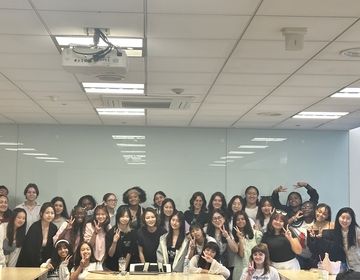The moral dilemma of K-Pop
Phoebe Bain
Kpop in Context
Dr. Saeji
27, July 2017
The moral dilemma of K-Pop
As the Kpop industry has developed into a more complex, international, and successful industry, there have been many changes in the business and production of kpop. The driving force behind these changes is for the benefit of the industry, but such decisions often tread a blurry line of ethics. This leads to a growing phenomenon in the industry-- that it is impossible to prioritize both success and virtuous processes. One must chose to sacrifice moral integrity to become successful, or sacrifice success to maintain moral integrity. It is in this conflict of priorities that we see a central dilemma in Kpop: the choice of prioritizing profit over ethics, or vice versa.
The widespread popularity of kpop has lead it to become an entity for nation branding and national representation. The government has heavily invested in the Kpop industry with the intent of using kpop to serve its economic and cultural goals. This investment gives rise to an obvious dilemma-- whether to use kpop as a promoting vessel for traditional korean culture, or to promote what sells the best. This begs the question, is the primary job of a government to protect the culture of its people, or to benefit the economy of its people? The concept of protecting a moral success rather than a material one is drastically polarizing, and has yet to revise a definite positive or negative reception.
Sponsorship, as well, creates an ethical dilemma. Choosing money over the bodily integrity and dignity of trainees violates even the most basic moral standards, yet the incentive of profit seems to trump those contraventions. An additional conflict exists beneath the ethics vs profit quandary; who gets to decide whether sponsorship, or any unethical practice, is acceptable? The reality that the top people of the industry are making these decisions, and not the people who must carry them out, speaks to how deeply this issue of skewed morals runs within the industry. However, sponsorship is not present in all companies, and is most commonly implemented only when it provides a much needed profit. This speaks to the moral struggle of condoning such an awful practice, and disregarding the benefit it promises.
This precarious relationship of ethics and profit is also deeply ingrained in fan culture, the very basis of the kpop industry. The concept of Jogung favors materialistic and shallow expressions of love to create a monetary profit. It blatantly favors wealthy fans, and creates a cruel hierarchy within fandoms. There is a movement to replace Jogung with more selfless acts, in an effort to reshape stereotypes surrounding fan culture. But the fact that such an immoral culture is so widely accepted coupled with how the masses are desensitised to their exploitation demonstrates how accepted this phenomenon of prioritizing profit has become.
The struggle to expedite success at the price of ethics is a core aspect of the growth of the kpop industry. Very often, profit is prioritized and the ethics of the process are marginalized; the ends justify the means. However, profit does not always surmount ethics, indeed if it did, then there would not be a dilemma with expediting both of them them. It remains to be seen how this conflict will develop and change, and we may only hope for the best.
Related Posts
Kimchi Making, Hanbok, and Markets, Oh My!
What a whirlwind the last few days have been here for our Seoul Global Navigators! Students here have really hit the ground running and immersed themselves right into Korean community... keep reading
CIEE's Got Talent
What a group of talented students! Our Kpop Immersion group learned how to dance to "How Sweet" by New Jeans by the well-known dancer Hexxy. They did well trying to... keep reading
Music, Make-up, and more!
Hello from Week 2 of Session 1 in Seoul! The students started off this week with their K-pop class where they learned even more about the history of music in... keep reading



